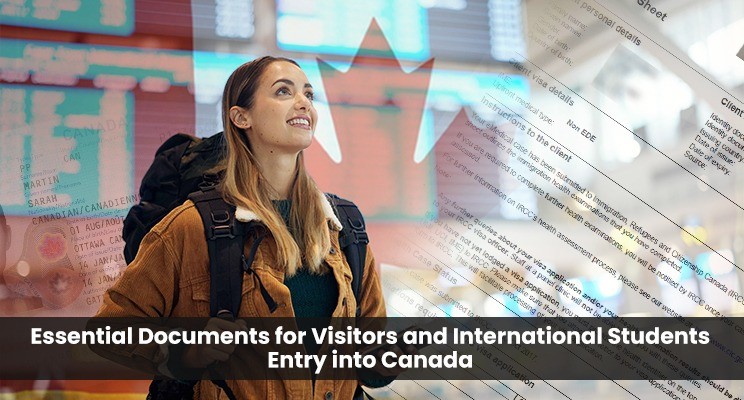
Recently, there has been an increase in the scrutiny of temporary residents, particularly international students and visitors, upon their arrival at Canadian airports. Despite holding valid visas, some individuals have been found ineligible to enter the country by CBSA officers, who hold the final authority to grant entry. In certain situations, affected individuals may be given the option to apply for refuge or return to their home country. It is crucial to understand that a visa permits travel to a Canadian port of entry, but entry is ultimately at the discretion of the border services officer.
To ensure a smooth entry into Canada, visitors and international students should be prepared to answer questions and provide necessary documentation to prove their eligibility. Here are the key requirements:
Requirements for Visitor Visa Holders
Visitors coming to Canada to meet family or friends must meet the following prerequisites:
- Valid Travel Document: A passport or other valid travel document.
- Health Status: Proof of good health.
- No Criminal Convictions: No convictions related to immigration or criminal activity.
- Ties to Home Country: Evidence of ties to their home country, such as employment, residence, financial assets, or family.
- Intent to Leave Canada: Ability to convince the border officer of their intention to leave Canada at the end of their visit.
- Sufficient Funds: Adequate funds to cover their stay, which vary based on the visit duration and accommodation plans.
Additionally, visitors should carry an invitation letter from the individual or company they plan to visit. A border services officer may request to see this letter.
Traveling with a Minor Child:
If traveling with a minor under 18, additional documents are required:
- Letter of Authorization: If traveling with one parent, a letter from the other parent, including their contact details and a photocopy of their signed passport or national identity card.
- Solo Travel: If the child is traveling alone, a letter of authorization from both parents or guardians, including the contact details of the adult in Canada responsible for the child.
- Divorced/Separated Parents: Legal custody documents must be presented, and if a non-custodial parent is traveling with the child, a letter of authorization from the custodial parent is needed.